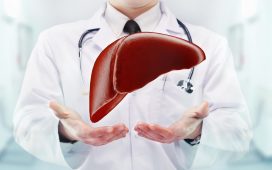Additionally, interim analysis shows that the antiviral is safe but has no effect on pain among adults with mild-to-moderate clade II mpox
By Lori Solomon HealthDay Reporter
FRIDAY, Dec. 20, 2024 (HealthDay News) — The antiviral drug tecovirimat does not reduce the time to lesion resolution or pain among adults with mild-to-moderate clade II mpox and a low risk for developing severe disease, according to an interim data analysis from the international National Institute of Allergy and Infectious Diseases-sponsored clinical trial called the Study of Tecovirimat for Mpox (STOMP).
For the trial, participants who had been ill with mpox for less than 14 days in Argentina, Brazil, Japan, Mexico, Peru, Thailand, and the United States were randomly assigned (2:1) to either tecovirimat or a placebo.
The planned interim analysis at 75 percent of the study’s target enrollment revealed no difference in the time to lesion resolution for treatment with tecovirimat versus placebo. Pain reduction was also similar between the groups. Reported adverse events were low and did not differ between the groups. Given the findings, the study’s Data Safety and Monitoring Board recommended stopping further enrollment of participants.
“The initial STOMP findings provide valuable insight to inform clade II mpox medical countermeasures and underscore the critical importance of conducting well-designed randomized clinical trials during infectious disease outbreaks,” Jeanne Marrazzo, M.D., M.P.H., director of the National Institute of Allergy and Infectious Diseases, said in a statement. “Before 2022, no treatment candidate had been studied in people with mpox, and this trial is a critical step in our systematic evaluation of existing antivirals like tecovirimat while pursuing novel antivirals and antibody-based mpox therapeutics.”
SIGA Technologies provided tecovirimat for the study.
Copyright © 2024 HealthDay. All rights reserved.








